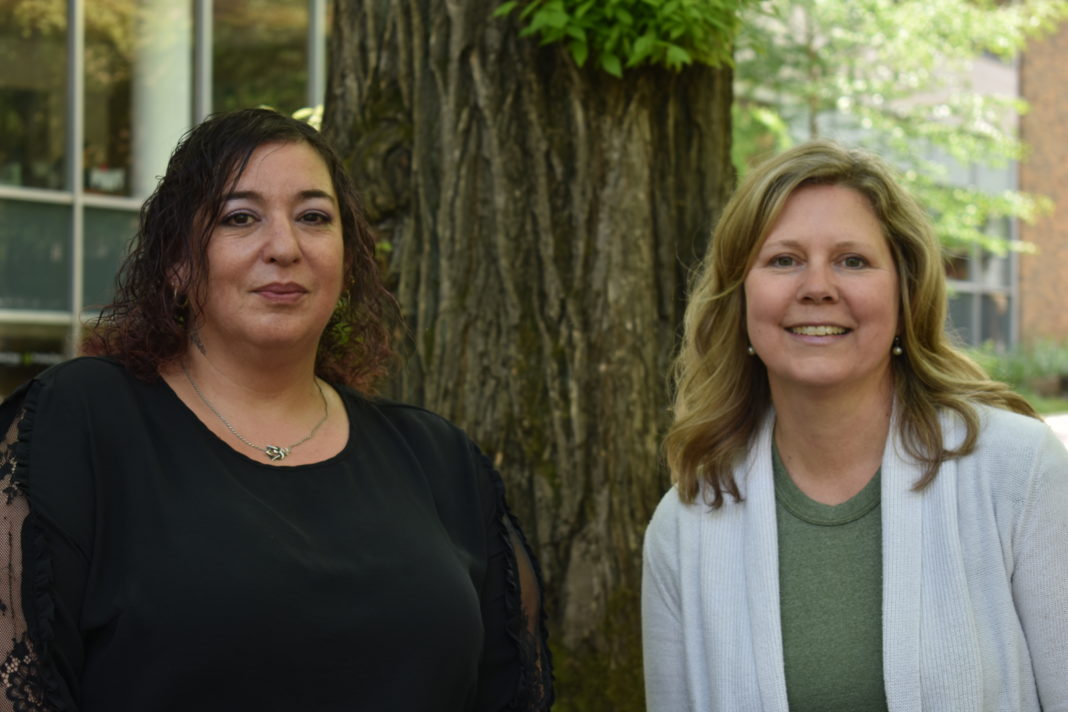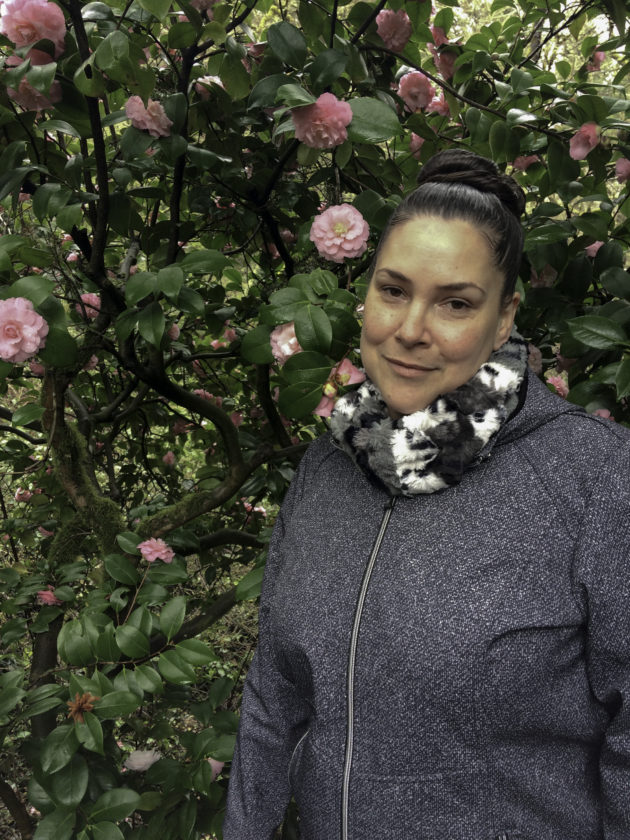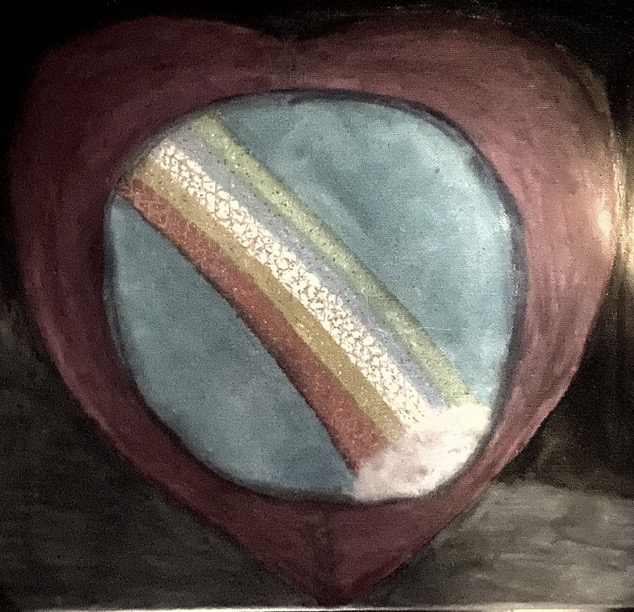Jacqueline “Jackie” Whitt took a class at Portland State last summer that changed her life.
“Just when I thought I couldn’t be more amazed,” Whitt said of the night class she took in July 2017, “just when I thought my mind couldn’t be more blown, I go into that class, and it’s just [an] explosion [in] my brain and in my spirit. I’m just mesmerized and in love with this.”
“Wow,” Whitt exhaled into the phone, “this is college.”
Currently in her early 40s, the mother of three adult children is an electrician’s apprentice and certified Peer Support and Peer Wellness Specialist with the State of Oregon. The class Whitt took, however, wasn’t a typical college course. In this civic leadership capstone, PSU students and individuals who have experienced incarceration worked together as peers to study the criminal justice system and systematic oppression of marginalized groups in the United States, all informed by the life experiences the non-traditional students shared.
Whitt has been in prison twice: the first instance with drug-related conspiracy charges and the second with burglary and theft charges. She most recently served 26 months and was released in 2015.
Before taking the class, Whitt didn’t know higher education was in her future. She said years of undiagnosed trauma and mental health issues, toxic relationships and poor life skills, along with a system she believes is designed to put her back in prison, meant she had no idea how she could use her experiences for good.
Whitt said the class taught her “ways to insert myself and ways to be effective in reaching an agenda,” she said. “I really understood that I am a powerful force, and I can get things done because now I’m being shown how to do it. That showed me how I can take action with my words and ideas. I never understood that or knew that.”
Reversing the School to Prison Pipeline
This kind of reaction doesn’t come as a surprise to Associate Professor in University Studies Deborah Smith Arthur and master’s in social work candidate Ailene Farkac, both of whom founded PSU’s Reversing the School to Prison Pipeline program together just this year.
Reversing the Pipeline offers mentorship and guidance for people currently experiencing incarceration who want to come to PSU and formerly incarcerated students already at the university.
The program has relationships with Portland Community College; Open School East, which supports high school students at risk of not pursuing higher education; The Multnomah County Parole and Probation Department; the Oregon Department of Corrections; and the Oregon Youth Authority to recruit PSU students and help them establish relationships on campus before they begin taking classes.
Arthur has taught at PSU for about 15 years after working as a criminal and juvenile defense attorney. She received a half-time course release from University Studies this winter to work on developing the Reversing the Pipeline program, but she has already been teaching classes to those living in the prison system since 2014 when she taught PSU’s first Inside Out class at McClaren Youth Correctional Facility in Woodburn, Ore.
Farkac, who works as the program’s college navigator, experienced incarceration at the Coffee Creek Correctional Facility in Wilsonville, Ore. for 22 months between 2008–2009. After being released, Farkac completed her degree at PSU and graduated summa cum laude in 2014 as a Ronald E. McNair Scholar, in which she studied re-entry following prison.
In 2014, she completed a six-month internship at the Mercy Corps re-entry transition center. She was then hired as a re-entry navigator and soon promoted to program coordinator. Farkac will graduate in a few weeks with her master’s in social work.
Farkac and Arthur began working together winter 2017 after Arthur led a panel discussion in which Farkac was one of five currently or formerly incarcerated people who gave testimony about how education changed their lives. “It was a very well attended and there was tremendous feedback,” Arthur said. “That kind of kicked off the program development for the RTP.”
Since then, the influx of currently and formerly incarcerated people either seeking guidance from Arthur and Farkac or offering their help hasn’t slowed. During the 12 drop-in hours Farkac has held, she said she’s spoken to 11 students on campus and three incarcerated students on the phone.
“I have meetings scheduled on the phone with students who are currently incarcerated but will be released within the next six months,” Farkac said. Arthur added that she has gotten letters from people still in prison telling her they want to come to PSU.
“We knew there was a need, but it proves to be even greater than we anticipated,” Arthur said. “So we’re really excited about building a foundation for this program and providing a real clear pathway for these folks to succeed in their education.”
Why is education important for formerly and currently incarcerated people?
PSU is not the first university to offer support for currently and formerly incarcerated people. In California, a cluster of state universities participate in Project Rebound, a program similar to RTP which also offers a special admissions process for those wanting to attend college full-time after prison.
Gateways for Incarcerated Youth in Olympia, Wash. offers classes from The Evergreen State College for high school or college credit and academic mentoring for those living inside Washington’s Rehabilitation Administration facilities. Universities have offered about 300 Inside Out classes, like the ones Arthur has taught since 2014, since 1997.
Arthur said offering these opportunities to people within the prison system or reintegrating into society is important because education drastically reduces prison recidivism. According to a 2013 Rand Corporation study, those who participate in correctional education programs are 43 percent less likely to return to prison than those who do not.
Additionally, Arthur said higher education offers people dignity and a sense of self.
Whitt said college offers a path for many people like her who might not see any other way out of old lifestyles, including severe poverty, domestic violence and drugs. “[Prison] really steals hope,” Whitt said. “It retraumatizes the people [who] are already traumatized. It victimizes people [who] are already victims way before they think about getting out.”
She added, “When people can access better resources and better ideas, they achieve greater things that contribute to the community versus stealing and taking from it. These are desperate people who do crimes and don’t see any other way out of what they’ve done.”
“When people can access better resources and better ideas, they achieve greater things that contribute to the community versus stealing and taking from it. These are desperate people who do crimes and don’t see any other way out of what they’ve done.” – Jackie Whitt
Ezequiel V., a 22-year-old student currently experiencing incarceration, wrote in a testimonial that he faced suspension and expulsion repeatedly from sixth grade until he was arrested. “Like most youth in the correctional system, education wasn’t a path I thought was for me, and going to college seemed to be far out of my reality,” Ezequiel wrote.
“Graduation wouldn’t come from high school but going to prison,” he added.
Ezequiel got his high school diploma at the Oregon Youth Authority in 2014 and his Associates Degree at Chemeketa Community College. He took a community-based learning course from PSU and is now an undergraduate student majoring in sociology at Oregon State University.
Arthur said offering higher education to currently and formerly incarcerated people is not just for their benefit. People who have experienced prison make for enthusiastic students. “[This] is a large population of very talented, very bright, eager students who are eager to learn,” Arthur said.
She added that a lot of people end up transferring to University of Oregon or OSU while still in prison or after being released, which Arthur said means PSU is missing out.
“I feel like as Oregon’s largest public institution of higher ed, in the largest urban area in the state,” Arthur said, “it’s our benefit and our obligation to provide a welcoming transition into higher ed for those students.”
She added, “We need to do a better job of reaching out to them and supporting them and inviting them into our campus community.”
Moving forward
Despite RTP’s recent creation, Arthur and Farkac said it has a strong support system.
Director of PSU’s School of Gender, Race and Nations Winston Grady-Willis, Director of Diversity Education and Learning in the Office of Global Diversity and Inclusion Lisa Grady-Willis, a representative from PCC’s reentry program the Opening Doors Project, and PSU Associate Professor of child and family studies Ben Anderson-Nathe have recently joined the program’s advisory board.
To make the college navigator position stable and salaried after Farkac graduates, RTP has applied for grants and attempted to secure donors for the position. Arthur and Farkac said keeping the position in place is important because students who have faced incarceration don’t always have a support system on campus or an understanding of how the enrollment or financial aid processes work when they begin higher education.
Farkac added that enthusiasm can sometimes turn into despair if a student starts taking a full-time load before they are ready.
“That’s one of the very first things we talk about,” Farkac said. “Are you stable enough in your life to take on full-time school, or what are the areas that we need to address first before you register for classes?”
Whitt said she is well aware of the need to get other aspects of life squared away before jumping into university life. She completed six years of dialectical behavior therapy and trauma therapy and has had to secure housing and build life skills to feel stable enough to start thinking about school.
She’s almost there. Now that she is in her 40s and is beginning to experience physical limitations in her electrician work, Whitt is considering going back to college. In the future, she hopes to write trainings and policy for organizations based on tools she learned in therapy, to break down what she called the subtleties that divide in the workplace.
“If just one class energized me and inspired me the way [the PSU] class did could you imagine eight or 10 or 12?” Whitt said. “I’d just be doing cartwheels to class.”







